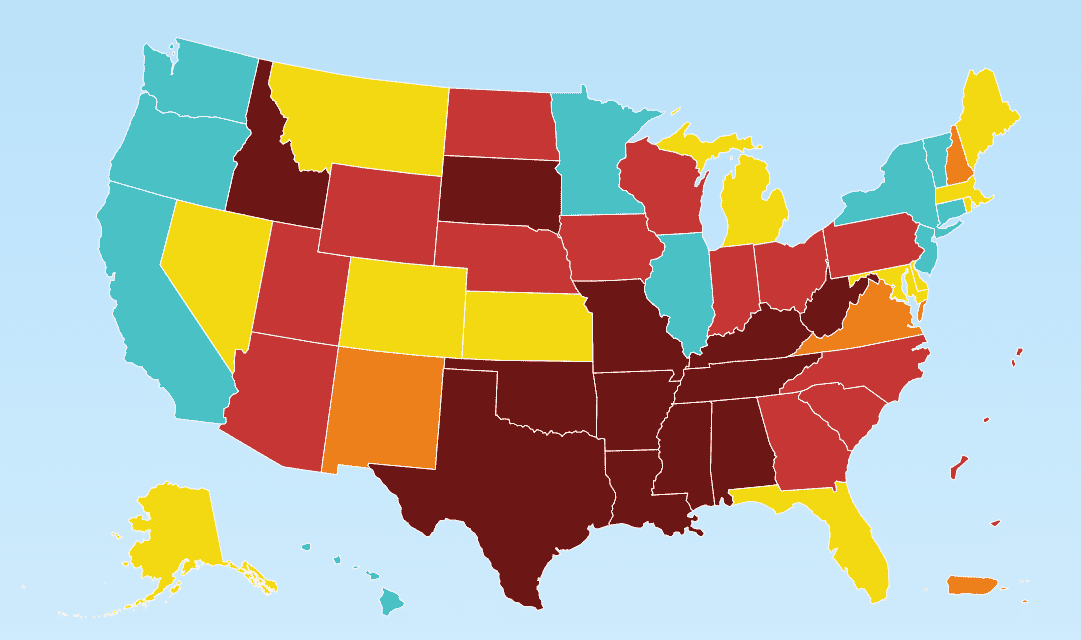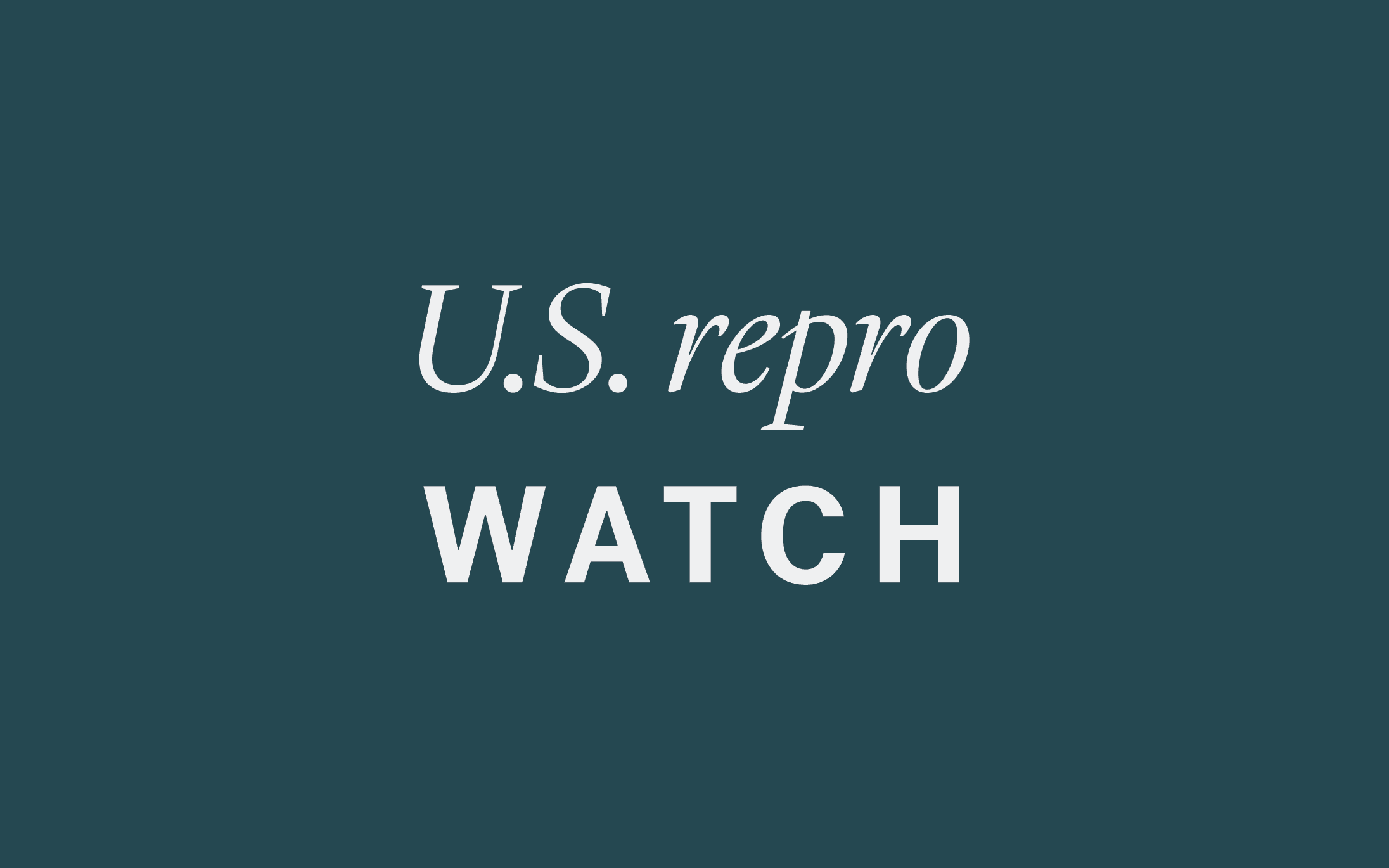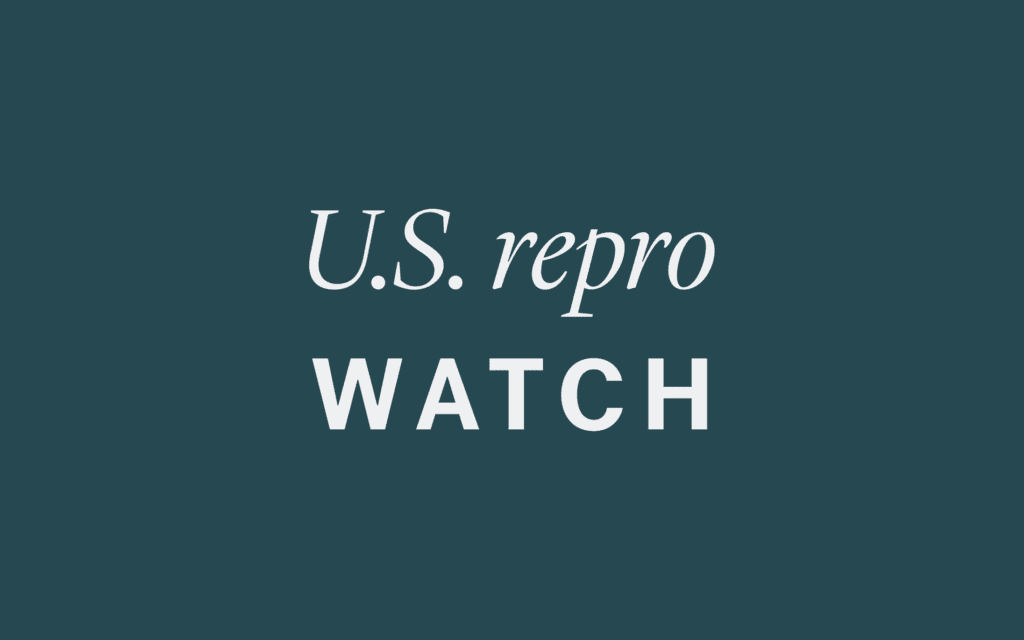U.S. Repro Watch, Feb. 8
This week's top 5 news items on U.S. reproductive rights.
“U.S. Repro Watch” provides periodic updates on news of interest on U.S. reproductive rights. Here are five recent items you won’t want to miss:
1. Members of Congress reintroduced a bill on February 2 to protect people’s right to travel across state lines for abortion services.
- The Ensuring Women’s Right to Reproductive Freedom Act reaffirms a person’s right to travel for abortion care and prohibits interference with the provision, access, or assistance of abortion across state lines. The bill has 150 co-sponsors and was reintroduced by Reps. Lizzie Fletcher, Marilyn Strickland, and Jamie Raskin.
- Last year, the House passed the bill just weeks after Roe v. Wade was overturned, but efforts to bring up a similar bill in the Senate failed.
More on abortion laws and policies in the states.
After Roe Fell: Abortion Laws by State
Explore this interactive map to learn more about each state’s abortion laws and policies, updated in real time.
2. A West Virginia abortion provider filed a lawsuit in federal court on February 1 seeking to block the state’s total abortion ban.
- The lawsuit argues that the ban, which contains exceptions for only very limited circumstances, imposes “irrational” and medically unnecessary requirements on the provision of abortion care.
- The provider states that these restrictions “are out of touch with modern medicine, lack any rational justification, and are not logically connected to any legitimate government interest,” making them unconstitutional under the U.S. Constitution’s 14th Amendment.
3. After Minnesota became the first state to enshrine the right to abortion into law this year, the state legislature is considering other bills to protect abortion rights.
- On January 31, Minnesota Gov. Tim Walz signed the Protect Reproductive Options (PRO) Act into law, establishing a fundamental right to reproductive health care, including abortion, in the state.
- The Minnesota Legislature is now considering legislation to repeal medically unnecessary restrictions, such as a forced 24-hour waiting period that a state court declared unconstitutional last year.
- In 2022, California, Michigan, and Vermont explicitly enshrined the right to abortion in their state constitutions.
4. The Biden Administration proposed a new rule on January 30 aiming to expand access to contraception.
- The proposal reverses a previous rule that allowed employers to refuse contraceptive coverage under the Affordable Care Act on moral grounds.
- It would also create a pathway for individuals enrolled in plans without contraceptive coverage to obtain birth control at no cost directly from a willing provider.
5. A Texas resident who almost died due to the state’s extreme abortion ban was a guest at President Biden’s State of the Union address on February 7.
- Amanda Zurawski, who was a guest of First Lady Jill Biden, needed an abortion after her water broke at 18 weeks of pregnancy. She became septic and nearly died because her doctors were concerned that the treatment she needed for her lost pregnancy would violate the state’s extreme ban.
- “We are delighted that President Biden is making abortion access a priority issue,” said Zurawski, “and are hopeful that this will help highlight for the American people the devastating impacts the restrictive antiabortion laws are having on women.”
Read more.
U.S. Repro Watch, Feb. 1
Read last week’s U.S. Repro Watch.
Coming Up
February 10: Briefing due in the lawsuit against the FDA that could end access to abortion medication nationwide.
- The case, Alliance for Hippocratic Medicine v. FDA, filed by anti-abortion groups, seeks to revoke FDA approval of mifepristone, one of two drugs used in a medication abortion. If the court sides with anti-abortion groups, every state—including states where abortion is legal—will lose all access to medication abortion. The court could issue its decision any time after briefs are submitted.
- Read more about the lawsuit in this article in The Cut, “The Future of Abortion Pills Is on the Line.”
February 16: Hearing on Guam’s abortion counseling requirement.
- The Ninth Circuit Court of Appeals will hear arguments at 9AM HST/2PM ET over a law forcing physicians to give government-mandated information in person to patients before providing care. This requirement, which is currently blocked, prevents the provision of abortion pills via telemedicine.
- Abortion care is already difficult to access in the U.S. territory since the Pacific island’s last remaining abortion provider retired in 2018. Without access to telehealth abortion services, Guam residents would be forced to travel 4,000 miles each way to Hawaii just to obtain services.
Center in the Spotlight
Read select media coverage featuring Center leaders across the globe.
Did you know?
In a piece for BMJ Journals titled “Trauma of abortion restrictions and forced pregnancy: urgent implications for acute care surgeons,” a group of nearly 20 doctors warned that surgeons will likely see more patients with complications from both forced pregnancies and unsafe abortions now that abortion is banned in many states. Experts from medical centers and universities including the University of Chicago, Duke Medicine, and the University of Florida note that the dangers of pregnancy far exceed the risks for abortion. For example, a Black person in Mississippi is 118 times more likely to die from carrying a pregnancy to term than from having an abortion.
The doctors urge healthcare providers to become educated and prepared on how to care for patients who face these complications. This includes the “ethical duty” to protect patients and their privacy by not reporting complications to law enforcement in states that restrict abortion.



